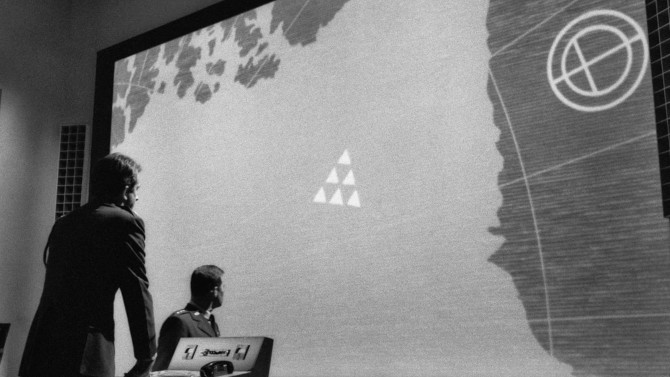
Safety First
Like a severe and utterly serious version of Stanley Kubrick’s 1964 satirical dark comedy Dr. Strangelove or: How I Learned to Stop Worrying and Love the Bomb, you would think that Fail Safe would have been the original release in theatres that was then later spoofed, yet that is not the case. Released approximately six months later in the same year, as you might imagine, it led to very poor returns at the box office – dare I say it (as the film deals with this subject matter)... it was a bomb! Despite that, over time, it has become a bonafide classic. Based upon Eugene Burdick’s 1962 novel of the same name and directed by Sidney Lumet (Dog Day Afternoon), he introduces us to our main players by way of little vignettes.
-
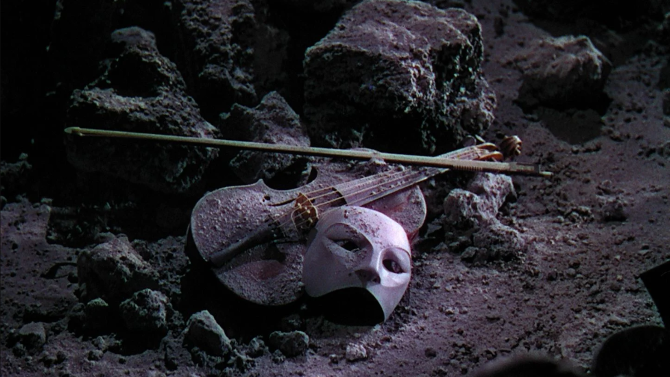
Phantom Threads
Phantom of the OperaSeptember 13, 2022Though definitely not the most iconic version of Gaston Leroux’s much loved horror romance novel, 1943's Phantom of the Opera is opulence personified. Directed by Arthur Lubin (the man behind so many classic comedies with Abbott and Costello. . . though he had already proven that he could do darker work with Lugosi and Karloff in 1940's Black Friday), the movie is actually filmed on the set constructed for the legendary Lon Chaney Sr. 1925 version. . . built to be completely identical to the actual Paris Opera House (a true masterpiece of set design). This version is shot in stunning Technicolor, every single hue popping to create an eye-catching pastiche. Paired with creative cinematography that at times reaches German Expressionism like chiaroscuro lighting (especially when filming the Phantom), this really is a treat to look at. It is then all pieced together with creative crane shots, intriguing static angles and so much more, a technical masterpiece that cannot be denied.
-
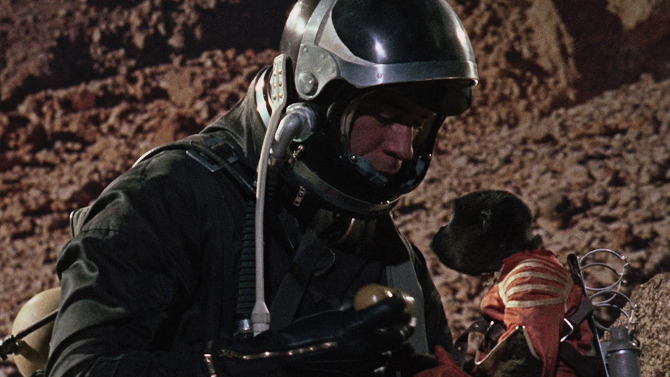
Monkeying Around on Mars
Robinson Crusoe on MarsMay 31, 2022An intriguing reworking of Daniel Defoe’s classic 1719 novel “Robinson Crusoe”, director Byron Haskin, who in 1953 brought aliens from Mars to Earth with the epic The War of the Worlds, this time flips the script and takes us to the red planet with the sci-fi cult classic Robinson Crusoe on Mars (1964). Though falling comfortably within the sci-fi genre, Paramount’s promotional team clearly reveled in the movie’s attempted accuracy – the trailer and advertising posters reading: “This film is scientifically authentic. It is only one step ahead of present reality”. And, in many ways, it was impressively accurate for what was known at that moment. Released at the perfect time in history, 1964 was just one year prior to the first spacecraft fly by of Mars... before that, all that we knew was by way of observation through telescope.
-
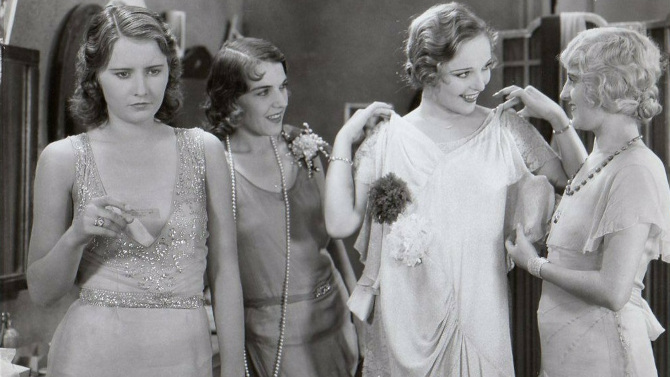
Brother, Can You Spare a Dime?
Ten Cents a DanceMarch 9, 2022It’s intriguing to think how time tends to shrink an actors or directors filmography. . . the passing years seeming to erase movies (be them lesser, unrelatable to present viewpoints, simply lost to time, or so on). For instance, Lionel Barrymore – once one of the biggest stars in Hollywood, a two time Academy Award nominee (and one time winner), is mostly known for his cantankerous and utterly realistic portrayal of villainy as Mr. Potter in the Frank Capra Christmas classic It’s a Wonderful Life. In actuality, he has an impressive 217 acting credits to his name, while many may not even know that he was also a director. . . today’s film his fourteenth and final credited effort – Ten Cents a Dance (1931). A title pulled from a popular 1930 song of the same name (written by Richard Rodgers, lyrics by Lorenz Hart, originally sung by Ruth Etting), the playful, jazzy romp sways over both the opening credits as well as when the screen turns black at the end of the film. A tune lamenting the work of a taxi dancer, that is, a girl hired to shimmy with libidinous men at a happening nightclub for ten cents a dance, poor Barbara O’Neill (Barbara Stanwyck) is our titular character.
-
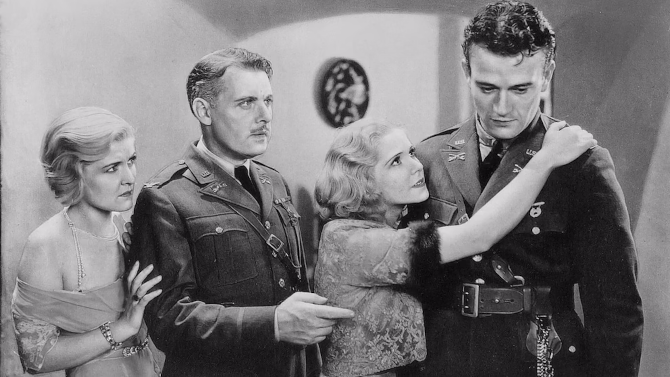
Made Marion
ArizonaDecember 17, 2021Hell hath no fury like a woman scorned – there is no doubt Pre-Code cinema thrived on this ancient idiom. A prime example is George B. Seitz’s 1931 romance driven drama, Arizona (based on a famous play of the time written by Augustus Thomas). Poor Evelyn Palmer (Laura La Plante) – she’s been in a very secretive romantic tryst with one of the Army’s top up and comers, Lt. Bob Denton (a very early starring role for John Wayne). Charming, debonair, and a supreme athlete (he’s the star full back in the annual Army-Navy football game... they even send him in to kick the extra point to win the game), Evelyn has spent the last two years of her life courting the catch. . . only for him to break it off after his memorable performance (saying he never planned on marrying her after all).
-
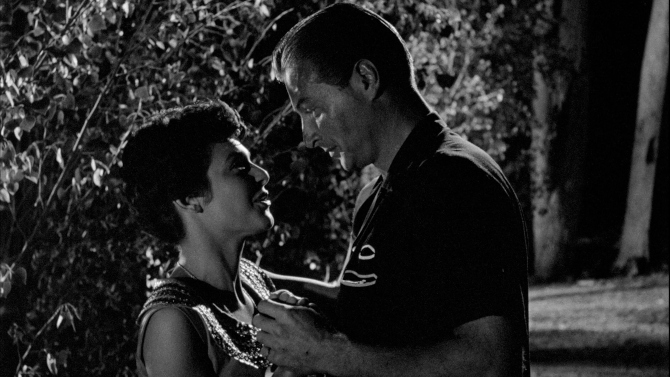
Stocking Stuffer
The Girl in Black StockingsNovember 30, 2021Wow – what a tagline: “One will die tonight! The girl on the loose, the smart secretary... they’re too teasing...too tempting...too easy a target for a crazed killer!”. 1957's The Girl in Black Stockings, coming from famed producer and sometime director Howard W. Koch, is a B budget film noir that really demonstrates its influence as a precursor to the gialli and slasher films that would follow some fifteen or so years later. Nearly entirely set in one location, welcome to the small town of Kanab, Utah... a population of three thousand that houses within it the relaxing Parry Lodge – a perfect place for those looking to escape their stressful lives. Run by a brother and sister, Edmund Parry (Ron Randell) is a clench jawed cynic (likely stemming from the fact he is a quadriplegic), often spouting cheerful lines like, “I’d like to get so drunk I’d look in a mirror and spit in my own face”, while Julia (Marie Windsor – The Killing) is everything to him but wife (but that doesn’t mean she’s not jealous when a woman shows him any attention).
-
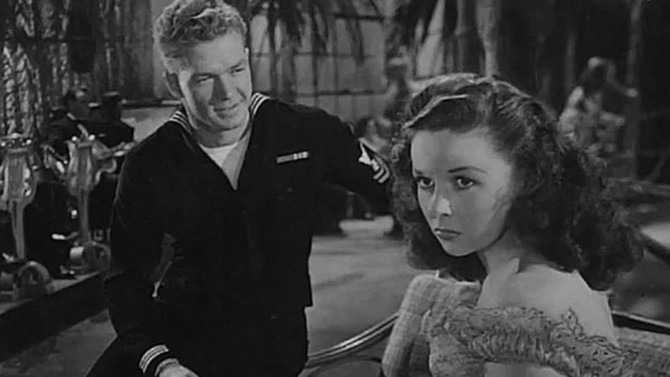
Death, Deadlines, and Dawn
Deadline at DawnNovember 25, 2021Sometimes the heat makes us go a little crazy. Likewise, alcohol can have a similar effect... pair them both together, and all bets are off. Transporting us into the dog days of summer in the City That Never Sleeps, Deadline at Dawn (1946), directed by Harold Clurman (the only feature made by the legendary stage director), is full of drunken danger. With perspiration dripping from every pore, baby-face Navy sailor Alex Winkler (Bill Williams) finds himself waking from a nasty bender at a New York City newsstand. . . if that wasn’t bad enough, he discovers a wad of cash that isn’t his and a faint memory of stealing it from loose femme Edna Bartelli (Lola Lane), a slinky blackmailer who’s definitely on the fatale side.
